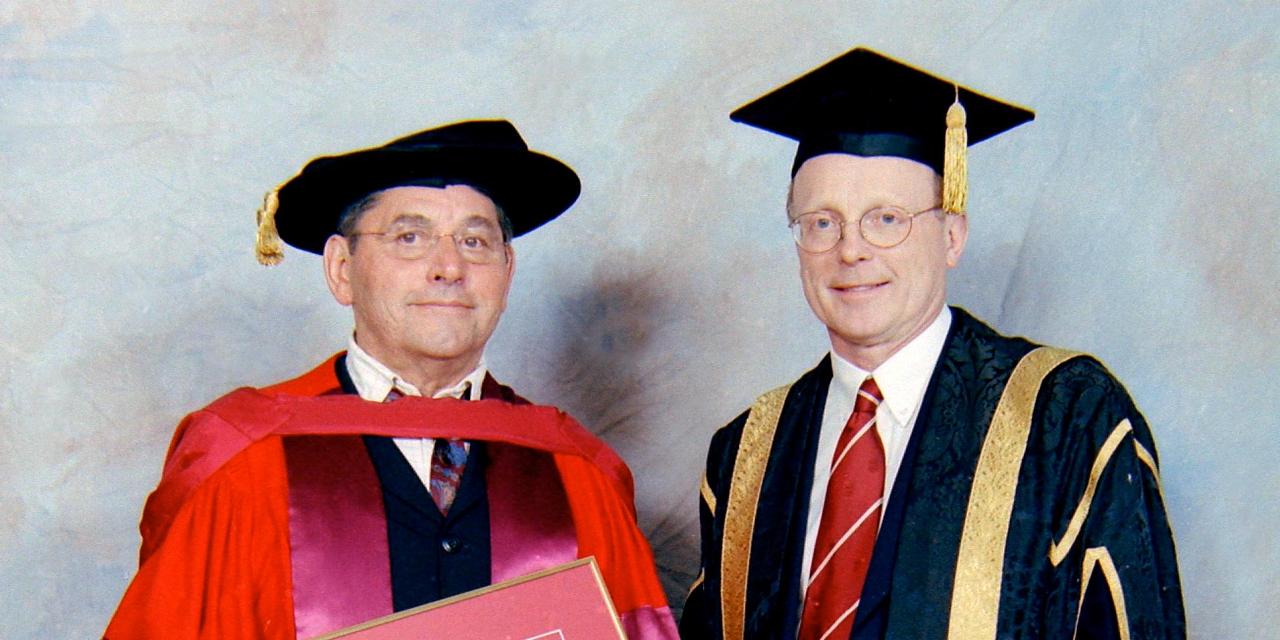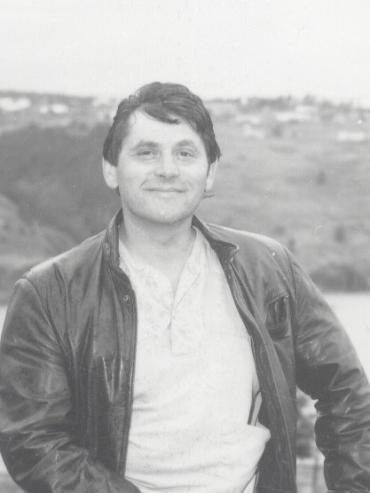At war with aggression
When Dr. Elliott Leyton attended a screening of Silence of the Lambs, starring Anthony Hopkins and Jodie Foster, in 1991, he walked out of the theatre in disgust.
It’s not that the world’s leading authority on criminal psychology was offended by the film’s suggestive treatment of violence. He had been studying serial killers and the heinous details of their crimes for over a decade and knew how to detach.
He walked out because the film’s portrayal of Dr. Hannibal Lecter as an intelligent, cultured, philosophizing serial killer with an unquenchable thirst for violence was little more than another vampire story — a myth.
Dr. Leyton rejected the Hollywood portrayal of the eccentric criminal mastermind. He told the U.K.’s Sunday Telegraph, “These people aren’t geniuses; they are evil, angry morons who can’t find any other way to express themselves.”
It was this quotable, straightforward way of speaking and writing, combined with his subject matter and academic rigour, that made him famous.
Dr. Leyton was born in Leader, Sask., and raised in Vancouver. He completed his BA and MA at the University of British Columbia and his PhD at the University of Toronto.
As a social anthropologist, he immersed himself in his work. To complete his doctoral thesis, he lived in a small Irish fishing village studying relationships of kinship and class. Then, after accepting a position at Memorial University in 1967, he wrote Dying Hard, his classic work on industrial disease, and lived among the fluorspar miners of St. Lawrence for months.
His early work dealt with relevant social issues and managed to reach an audience beyond academia. He collaborated with the Mummers Troupe to dramatize Dying Hard and with Codco to produce work based on his book, The Myth of Delinquency.
But he had not yet discovered the subject that would bring him a world-wide audience.

Dr. Elliott Leyton with former Memorial University president Dr. Axel Meisen after being named professor emeritus in 2004. Photo from Memorial University Archives.
Then in 1980, he noticed his wife, Bonnie, was reading a book about the infamous serial killer, Ted Bundy. Dr. Leyton read it as well, found it superficial and, after further research, discovered a lack of academic work on the subject.
Perhaps because his conclusions did not fall in line with traditional or sensationalized views on the topic of mass murderers, his first manuscript was rejected by several publishers. But when it was finally published in 1986, Hunting Humans challenged everything previously thought about the phenomenon. It became an instant international bestseller.
The book appeared at a time when the cultural fascination with deviant killers was approaching its height. He began appearing on some of the most popular true-crime shows on television.
More books followed, more bestsellers. The work redefined the field to such an extent that The Sunday Telegraph would declare Dr. Leyton “a godhead of modern criminal psychology.”
He worked as a consultant with the RCMP and FBI and was the first civilian ever granted unrestricted access to files at Scotland Yard.
His writing was considered required reading for investigators, and because he did help detectives develop criminal profiles, it’s tempting to think of Dr. Leyton as a modern-day Sherlock Holmes.
But he bore little resemblance to the affected Victorian sleuth in tweed and deerstalker. He was most comfortable in a Henley and a leather bomber jacket. He was a dedicated weightlifter, a karate black belt and a champion marksman.
Dr. Leyton’s intelligence, openness and ability to relate with students was renown across Memorial. His lectures captivated his audiences, and his course War and Aggression, held in the Science building’s large lecture hall, was filled beyond capacity (with a daunting waitlist) for over a decade.
While his work delved into dark subject matter — serial killers, parents who kill their children and children who kill their parents — his objective was a more humane society. He was outspoken about misogyny and violence against women while admonishing the celebrity afforded to high-profile murderers.
He shone a light into the darkness so we could see the power structures and motivations lurking there. He showed us the extremes so that we might learn from them to produce a kinder world.
